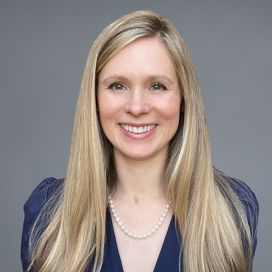Chicago Scholars Randomized Controlled Trial

Problem
The Institute of Education Sciences sought to understand the impact of a college success program for first-generation and low-income students.
The Chicago Scholars program provides a comprehensive seven-year support system for low-income and first-generation youth in Chicago, beginning in their junior year of high school and extending through college and into the workforce. While preliminary data suggests that, at the start of this study, 83 percent of Chicago Scholars graduates receive a college degree within six years (compared to 48 percent of Chicago Public School students), the program lacks rigorous evaluation to determine whether these outcomes can be attributed to the program itself. The Institute of Education Sciences has identified a shortage of impact studies focused on comprehensive interventions for students facing barriers to college completion. An examination of the Chicago Scholars program presented an opportunity to begin to remedy that shortage.
Solution
NORC is conducting a randomized control trial to assess the impact of Chicago Scholars.
NORC is implementing a rigorous randomized controlled trial (RCT) of the Chicago Scholars program, following 1,700 eligible students across two cohorts (classes of 2027 and 2028). By randomly assigning applicants to the Chicago Scholars intervention or a control group, we can determine whether the program’s comprehensive supports are responsible for improvements in the participants’ college outcomes. This experimental design addresses selection bias concerns inherent in previous observational data.
Our study examines two primary outcomes: on-time college matriculation and persistence through sophomore year. We are also evaluating the quality of college match and graduation track records of the institutions attended. To understand implementation fidelity and service contrast, we will administer the College Access and Supports (CAAS) Survey to all participants, documenting students’ engagement with Chicago Scholars and any alternative support programs accessed by control group students. This comprehensive approach enables both intent-to-treat and treatment-on-the-treated analyses to isolate the program’s causal effects. Additionally, a cost analysis will determine the financial investment required per unit of program delivery.
Result
Findings from this study will provide evidence-based guidance for ensuring that students from all backgrounds have a chance to succeed in college.
Our research will contribute to the limited evidence base for what works to support postsecondary success for students historically underrepresented among college graduates. A positive outcome from this RCT could inform the scaling of the Chicago Scholars model beyond Chicago. The study also includes a cost analysis to assess the feasibility of implementing similar programs in other cities, considering how costs may differ in districts of various sizes and across public versus private program structures.
Since Chicago Scholars continues to provide support after college, this study establishes a foundation for potential follow-up analyses tracking long-term outcomes such as graduate school enrollment and employment success, further expanding our understanding of comprehensive support models for historically underrepresented students.
Project Leads
-
Robert M. Goerge
Senior FellowPrincipal Investigator -
Leah Gjertson
Senior Research ScientistProject Director -
Cynthia M. Simko
Associate DirectorAssociate Director









